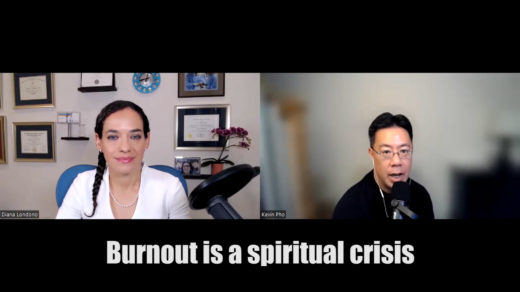Should match rules prohibit postinterview communication between applicants, mentors, and programs?
This is the main question raised by authors Drs. Greenberg, Scott, and Chen in their recent letter to the editor of JAMA ophthalmology, which was published online earlier this week. Their letter references our article on the vitreoretinal surgery fellowship match, which suggested that applicants who disclose their number 1 ranking, either personally or via a mentor, experience improved match outcomes compared with their cohorts who do not make such disclosures. Please click here for a summary of the article or watch the video below.
Read the full letter to the editor and our corresponding reply.
In their letter, the authors wrote,
“We do not believe that this phenomenon, which is called the disclosure effect, is ideal or fair either to applicants or training programs. There may be an unfair advantage for those applicants who do voice their preferences (as opposed to applicants who do not, either because they do not think to do so or are unsure if it is appropriate to do so). The disclosure effect also creates pressure on applicants to voice a pre-match commitment. Ultimately, the lack of standardization across all applicants regarding disclosure of a preferred program has the potential to bias the matching process.”
They go on to cite and summarize their recent 2018 study, which surveyed US ophthalmology residency program directors, saying,
“Lessons from the ophthalmology residency match suggest that most program directors (1) prefer that applicants and programs do not communicate during the post interview period and (2) have experienced applicants falsely communicating their preferred program. Indeed, to maximize the disclosure effect, there is nothing to stop applicants from communicating to multiple programs that the program is their top choice.”
Finally, they propose a ban on non-administrative post-interview communication between applicants and programs, referencing the 2012 policy for applicants applying to plastic surgery residency, stating,
“In the spirit of the guidelines from the American Council of Academic Plastic Surgeons, we favor a uniform policy that would prohibit nonadministrative post-interview communication between applicants and programs. We believe this would reduce gamesmanship and level the playing field for all parties.”
Before you read our reply, what do you think?
- Do you think the disclosure of an applicant’s number 1 ranking gives an applicant an “unfair advantage” in the match compared to their non-disclosing peers?
- Do you think there is a lack of standardization in interpretation of the post-interview communication match rules, and if so, could this lack of standardization bias the match?
- And finally, do you think the best solution to this potential problem is to prohibit all post-interview communication (other than administrative-type questions) between applicants and programs?
And careful consideration of the issues raised in the letter-to-the-editor, here is our reply…
“We appreciate the thoughtful letter by Greenberg et al pertaining to our article discussing post-interview communication in the 2016 and 2017 vitreoretinal fellowship match. Greenberg et al suggest the possibility of an unfair advantage to those applicants who do not disclose their preferences, either because they do not think to do so or are unsure if it is appropriate to do so. This is an important issue worthy of discussion, but whether these communications are ideal was not the purpose of our study. Rather, we wished to report how often these communications occurred and whether they had any correlation with final match outcomes. Our study, which clearly cites published match rules, informs future applicants and programs regarding this previously unpublished but common practice of mentor-to-program and applicant initiated rank disclosure in the vitreoretinal fellowship match.
Greenberg et al recommend adoption of a uniform policy prohibiting nonadministrative post-interview communication, similar to one adopted in 2012 for the plastic surgery residency match. Various post interview policies have been proposed within multiple specialties, and while such policies may serve to decrease applicant and program communication, violations are difficult to enforce, and communication persists despite such policies.
Policies that prohibit post interview communication are unlikely to eliminate applicant rank disclosure, because applicants may simply request that mentors disclose rank intentions to potential programs on their behalf. Our study investigated this type of mentor-to-program disclosure,with 42 of the 75 matched applicants (56%) surveyed in the 2017 match responding that their mentor or mentors had contacted their top-ranked program to inform them of their intention to rank them first.
Prohibiting applicants from personally disclosing rank intentions may not eliminate rank disclosures but rather may transfer this disclosure to their mentors. It may then be suggested that all applicant-to-program and mentor-to-program communication be prohibited. This is unwise. Personal communication between a mentor’s trusted friends and colleagues provides valuable information about potential fellowship applicants. Greater information about applicants, and similarly about programs, assists all parties in making final rank-order lists.”
We thank Greenberg et al for their letter and for encouraging the dialogue on post-interview communication within ophthalmology.We respectfully defer such important policy decisions to the leadership of the American Academy of Ophthalmology, the Association of University Professors of Ophthalmology, and the San Francisco Matching Program.
Final Thoughts
I would like publicly thank Dr. Greenberg, Dr. Scott, and Dr. Chen for taking the time and energy to write this letter-to-the-editor, as well as to JAMA Ophthalmology for the opportunity to provide additional commentary. These are important discussions for us to be having as an ophthalmology specialty and as a greater medical education community, and I suspect that our study being referenced here, the cited study by Dr. Greenberg and team, and other similar studies in other specialties will help steer the conversation toward greater clarity regarding post-interview communication. I personally don’t think the best solution is to prohibit all communication, but I absolutely agree that, if post interview communication is allowed and within-the-rules, this should be more clearly communicated to all applicants and programs, decreasing the potential for negative bias to those unaware of the “disclosure effect.”
What do you think about all of this? Please leave your thoughts in the comments section below and let’s continue the discussion!


